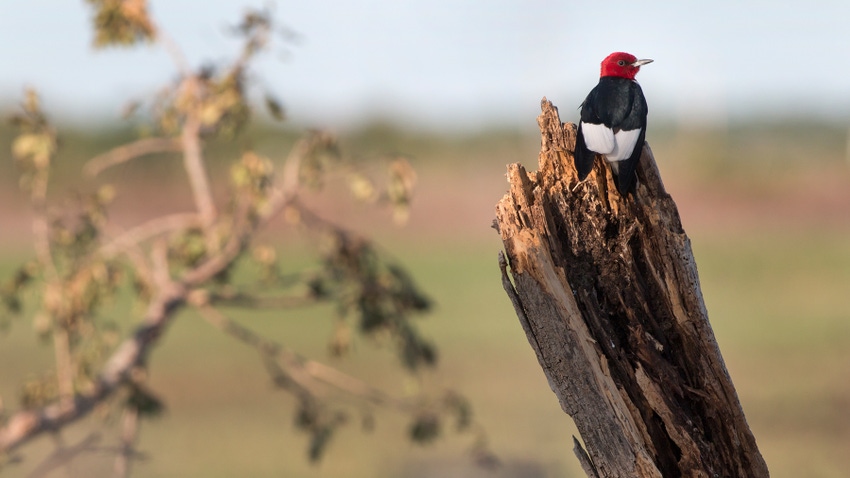
Do you ever feel like you’re caught in a never-ending game of Musical Chairs, circling the same three seats, to the same tune, on repeat?
Around and around you go, until your head is swimming and your lunch is threatening a return appearance?
Yeah, that’s a little what it’s like to try to comprehend and report on water in the state of Kansas. The dance partners never change. The water continues to be a vastly underestimated resource that we continue to attempt to allocate based off 1950s numbers. And we continue to circle to the tune of some faraway environmentalist who has never lived and worked in rural Kansas.
First verse
Take, for example, the ongoing struggle between the U.S. Fish and Wildlife Service, and the junior water rights holders of the Rattlesnake Creek Basin. The Rattlesnake Creek Basin provides water to the migratory and resident wildlife in the Quivira National Wildlife Refuge, managed by USFWS, and which holds the senior water rights.
Now, back in 2020, the USFWS raised a concern over impairment of its senior water rights by irrigators, municipalities and other junior water rights holders in the basin. A compromise was reached between USFWS and the Big Bend GMD (Groundwater Management District) 5 — the parties agreed to work to find a commonsense solution using science to balance the county’s agricultural economy and its human population’s needs with the needs of the wildlife and migratory birds.
Everyone thought the song was over. Time to put the fiddles away, right?
Well, now someone at USFWS decided to tack on another verse. And earlier this year, Director Martha Williams directed the agency to file a Request to Secure Water with the Kansas Department of Agriculture Division of Water Resources, citing that Quivira’s senior water rights have been impaired by the junior water rights of the surrounding communities and landowners.
Time to get the fiddle out again.
Repeat the chorus
Friends, I was there in St. John, Kan., at the stakeholder meetings in 2020, and I remember the packed rooms of stakeholders. I remember the emotions in their voices and on their faces as they shared how shutting off their water rights would cripple their farming and livestock production.
Even more troubling was the discussion over the tsunami of economic effects that would roar through St. John and Stafford County if those farmers and ranchers didn’t have access to groundwater rights.
To a bureaucrat in D.C., Stafford County is just lines on a map. They may not be able to fathom a county with no Walmart, a junior-senior high school that averages 100 students, and a county commission with just three seats.
So, I’m sure this move made sense on paper to them, but they didn’t bother to look at the history of the conflict and the repercussions of the actions not just to the birds, but to the people.
Sen. Jerry Moran, R-Kan., says that nearly 800 junior water rights (agricultural, municipal and industrial use) in the Rattlesnake Basin were at risk of being shut off.
Just a 60% reduction in planted irrigated corn acres in one county, according to Moran’s office, comes to a loss of over $41 million in economic activity. Across the eight GMD 5 counties and including the rest of farm production, that could mean losing $300 million to $500 million a year.
That’s a hit to the local tax base that may not be recoverable. And the state of Kansas could lose as much as $1 billion a year in economic activity if those water rights are lost.
As Moran said in a speech at the Kansas State Fair in September, the state of Kansas spent $898 million to attract the $2.5 billion economic impact of the new Panasonic plant.
“We ought to spend a lot of time and effort to make sure we don’t lose an existing business contributing one-third of the economic benefits of one plant,” he said.
Around and around we go again — same dance, same tune.
Stop the music
Just this week, on Oct. 11, Kansas Gov. Laura Kelly and Moran announced that through their bipartisan pushback, USFWS has come to an agreement with the KDA to collaborate on a solution to water rights issues in the Rattlesnake Creek Basin. USFWS will conditionally pause its request to secure its senior water right, according to the statement.
The music has paused. Until January 2025.
USFWS, in its letter to the KDA, states that it supports the state in formulating a “working group to develop a collaborative remedy that involves the full participation of the Service [USFWS], the GMD and other stakeholders to develop options that can be implemented starting January 2025.”
But, if the working group doesn’t come up with a collaborative remedy? USFWS will request to secure water for 2025 and beyond.
Friends, in games of musical chairs, when the music stops, someone is left without a chair. That’s winner-take-all.
But there is time, now, to adjust the rules of the game, so to speak, and make compromise and collaboration the goal instead.
Because this is one game where, if there is one winner when the music stops — we all lose.
To keep up on the issue, visit the KDA DIvision of Water Resources page.
About the Author(s)
You May Also Like






